Former professor calls on Wisconsin Supreme Court to define the limits of 'academic freedom.'
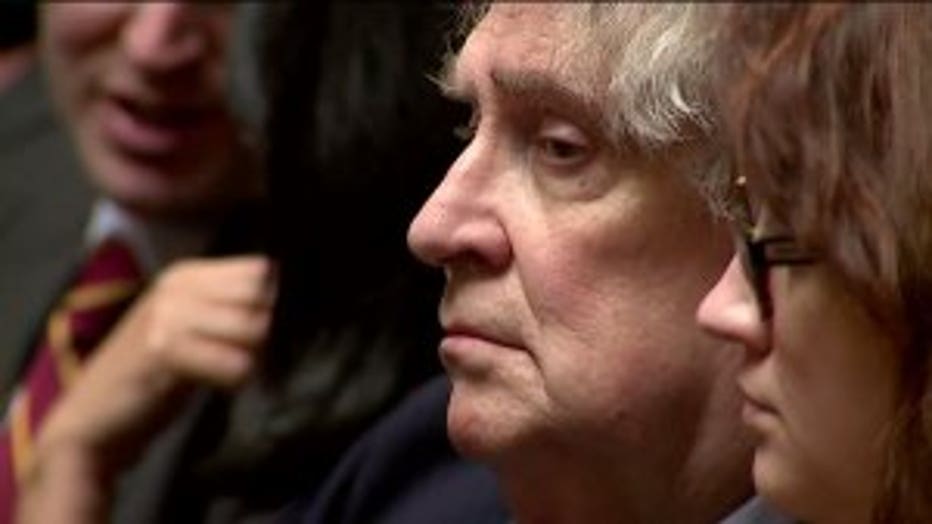
John McAdams, former Marquette professor, listening to oral arguments before the Wisconsin Supreme Court on April 19, 2018
MADISON — Can you get fired for criticizing your coworkers? A former Marquette University professor says that's basically what happened to him. Now, the state's highest court is considering what it means to have 'academic freedom.'
Four years ago, John McAdams drew national attention to a student instructor who had refused to allow a debate over gay marriage in her classroom. What happened next set off a legal battle that could determine just how far 'free speech' goes at a private university, and maybe even at your job.
Perhaps it's only fitting that the high-stakes legal debate at Marquette University all started in a philosophy class.
"A university is a place where debate is supposed to take place," said an unidentified Marquette student.
When a graduate instructor refused to allow one of her students to debate the "ethics" of gay marriage, the student confronted her after class.
"I just wanted to simply ask her, you know, 'Why did you let your personal views get in the way of that?'" the student said.
He was secretly recording the conversation with his cellphone.
"I am just having my opinions on a very broad subject," the student said to the instructor.
"You can have whatever opinions you want," the instructor replied, "but I will tell you right now in this class, homophobic comments, racists comments, sexist comments, will not be tolerated. If you don't like it, you're more than free to drop this class."
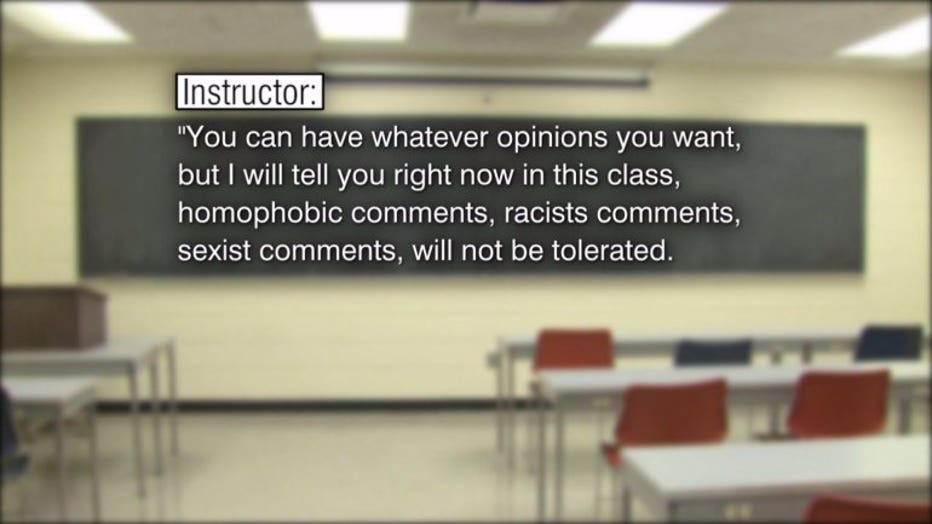
The student provided the recording to McAdams, then a political science professor on campus. McAdams wrote about the incident on his conservative blog -- Marquette Warrior.
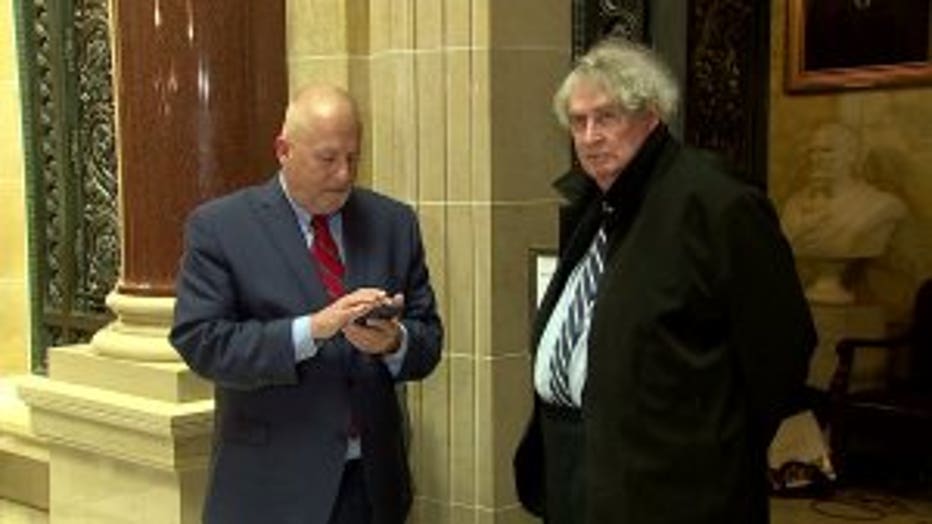
"I have been a critic of Marquette for a long time, and frankly, have embarrassed them," said McAdams.
This time, the post went viral, prompting outrage from conservatives across the country, and a barrage of hateful emails sent to the graduate student teacher.
"You don't paint a target on the back of a student, put her out in front of a hostile audience so that she can receive vile and horrific threats," said Ralph Weber, Marquette University attorney.
About a month after the post went viral, Marquette University suspended McAdams -- a tenured professor -- and eventually told him he cannot come back until he writes an apology.
"And I'm simply not going to apologize for something when I don't believe I did anything wrong," said McAdams.
Four years later, McAdams and Marquette find themselves in front of the Wisconsin Supreme Court.
Click here to view the oral arguments recorded by Wisconsin Eye.
"If academic freedom means anything at all, it has to mean that he cannot be fired for writing that blog post," said Rick Esenberg, McAdams' attorney, during oral argument before the court.
Esenberg is executive director of the Wisconsin Institute for Law and Liberty, which is representing McAdams in the case. He said Marquette's faculty contract promised McAdams both 'academic freedom' and 'First Amendment' protection.
"The correct response to speech we don't like is to respond to it, and not to attempt to discipline and suppress it," said Esenberg.
Still, Marquette argues that McAdams' post about the graduate student went too far because he identified the person he was criticizing.
" intentionally used a student teacher's name and linked to her contact information," Weber told the court.
But Supreme Court Justice Rebecca Bradley quickly interrupted:
Justice Bradley: "To her public blog on the internet, right?"
Weber: "Yes, but, but..."
Bradley: "That was the contact information?"
Weber: "Yes, but..."
Bradley: "It wasn't her personal cell number or anything like that?"
Weber: "It was not, but the way this works is you rev up a hostile audience. You put the person's name and a way to get their contact information in front of them, and this is what results."
"I linked to a page on her blog," McAdams would say after the hearing. "An essay about how all men are responsible for the prevalence of rape. That says something about her."
The case has drawn an unusually large number of third-party filings from organizations with an interest in the outcome, including the Metropolitan Milwaukee Association of Commerce.
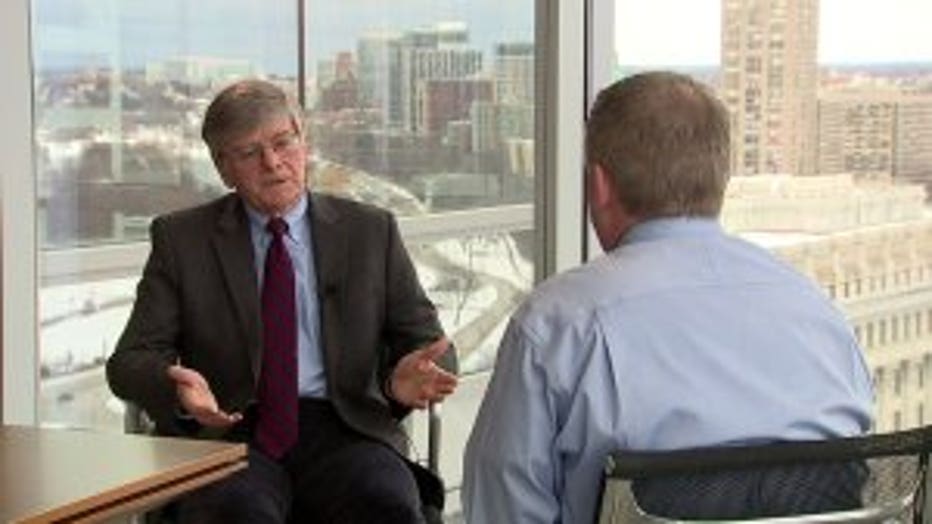
Mike Apfeld
"The business community is concerned," said Mike Apfeld, an attorney for the MMAC.
"Is there a concern about unintended consequences?" FOX6 Investigator Bryan Polcyn asked.
"Absolutely," responded Apfield.
Apfield said the MMAC is worried the court could make a ruling that makes it harder for all business to discipline their employees for disparaging remarks about coworkers or the company.
"Technically speaking, the First Amendment does not even apply to a private relationship between the employer and the employee," said Apfield.
After all, Marquette University is not a public school.
"Is Marquette University government?" asked Justice Ann Walsh Bradley during the hearing.
"No," Esenberg replied. "Marquette University is not government."
"No," Justice Bradley confirmed. "It's a private institution."
The court's decision is expected to set an important legal precedent and could define the limits of academic freedom.
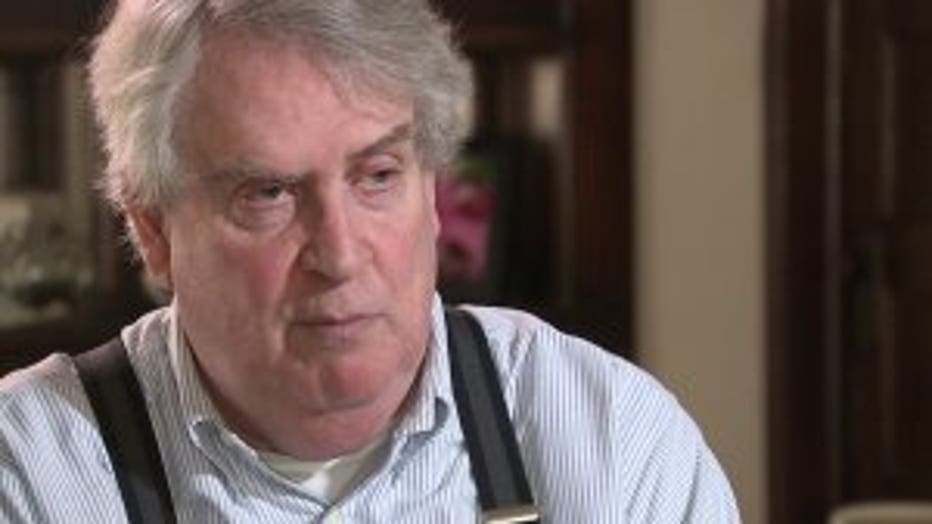
McAdams wants more than that.
"Go back to Marquette University and teach because while I have essentially zero respect for the people running the place, the students are pretty good," said McAdams.
For now, he remains either indefinitely suspended -- or fired.
"I'm not allowed to go to my office or teach classes, and I don't get paid, so is that suspended or is that fired? That's a bit of a philosophical question," said McAdams.
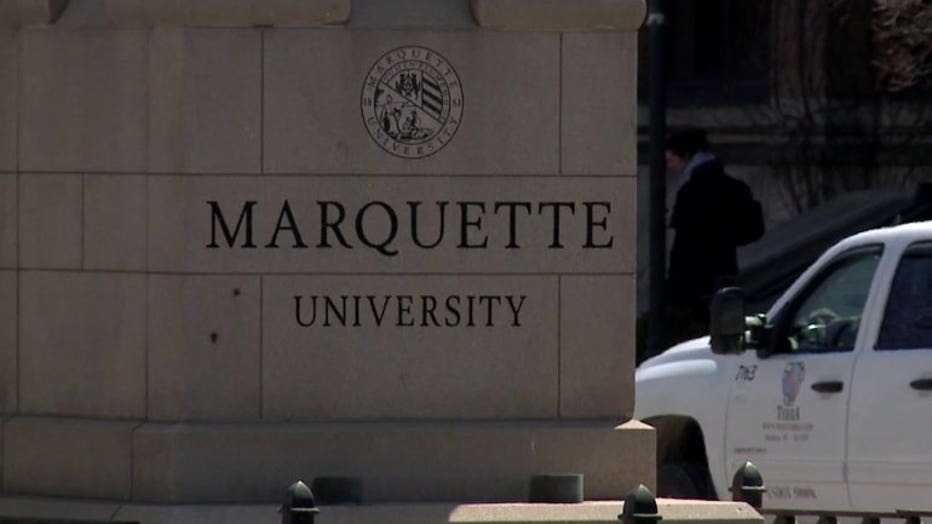
Marquette University
It's the kind of thing you could debate in a philosophy class.

